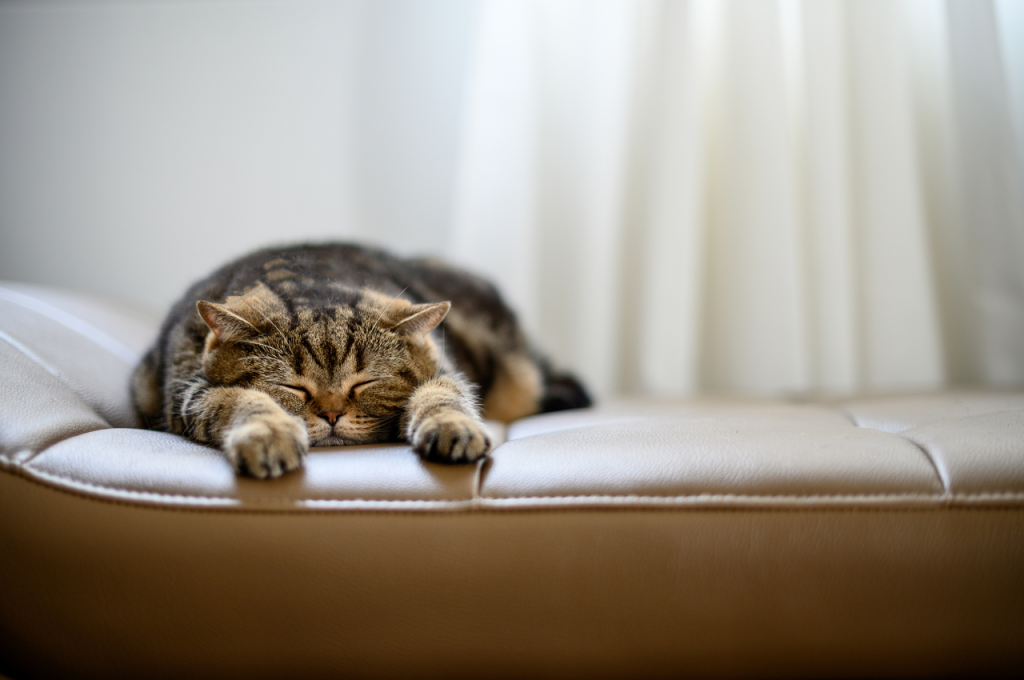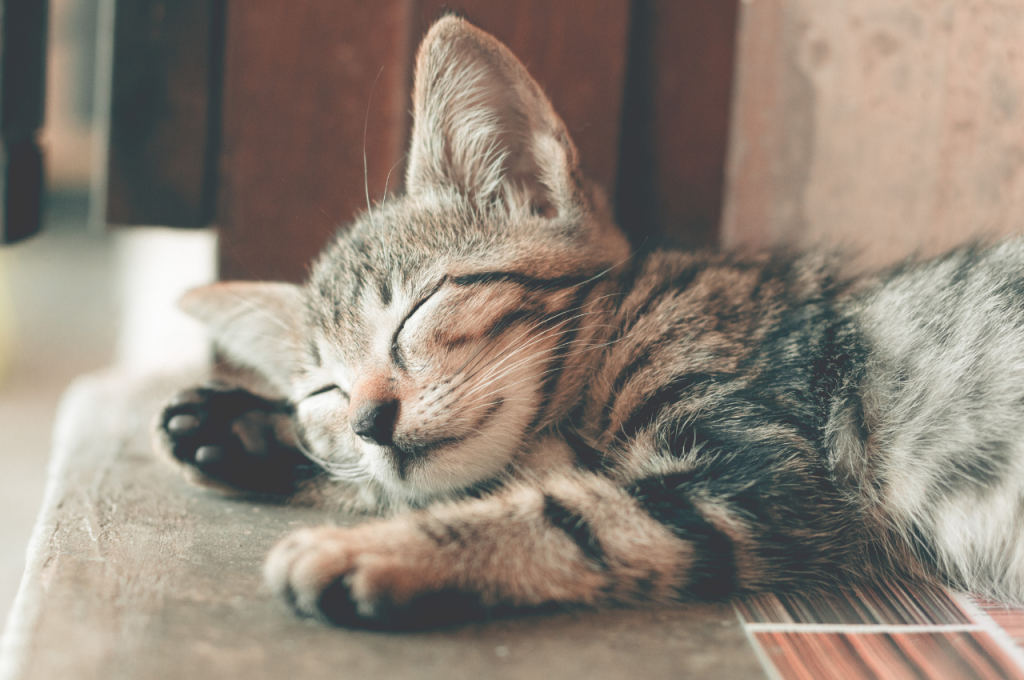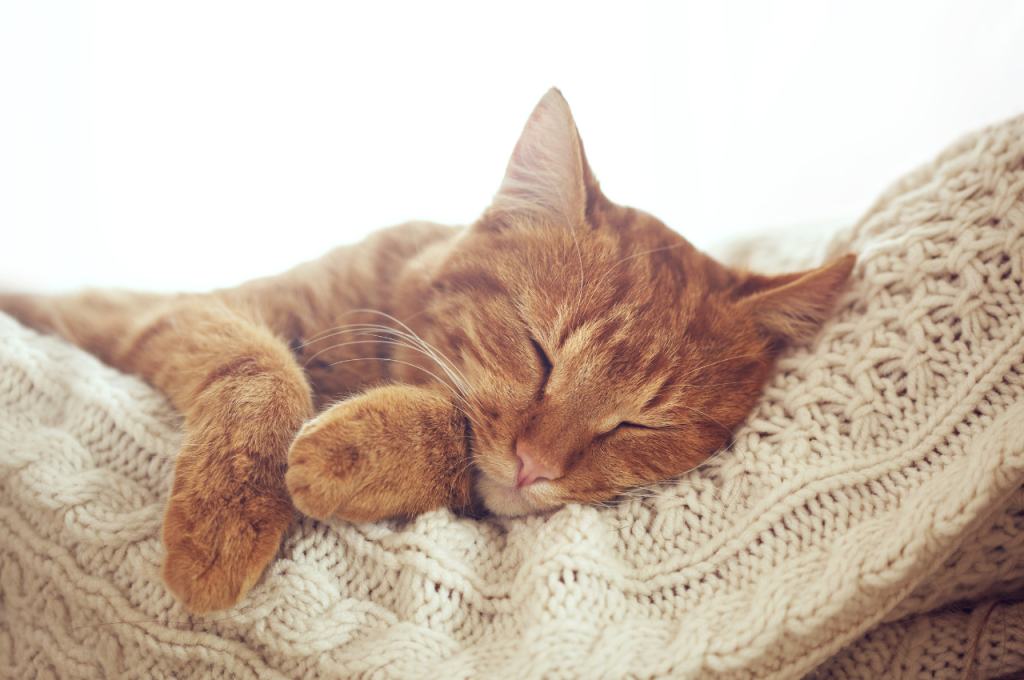Cats may refuse to sleep due to various reasons such as discomfort, stress, or medical issues. However, understanding why cats refuse to sleep can help owners address their needs and provide a comfortable environment for them.
Cats are naturally curious creatures and may be easily disturbed by loud noises or changes in their surroundings. Additionally, they may have difficulty sleeping if they are experiencing pain or discomfort, such as from an injury or illness. Creating a calm and peaceful environment, providing a cozy sleeping area, and ensuring their physical and emotional well-being can help encourage cats to relax and get the rest they need. Understanding their individual preferences and addressing any underlying issues can help cats sleep more soundly.
The Enigmatic Sleep Patterns of Cats
Cats are known for their enigmatic sleep patterns, which are quite different from humans. They are crepuscular animals, meaning they are most active during dawn and dusk. This results in a sleep schedule that involves numerous short naps throughout the day and night, rather than one long stretch of sleep. Cats typically sleep between 12 to 16 hours a day, but this can vary depending on age, health, and activity level. Their sleep is crucial for their well-being, providing them with the rest needed to maintain their energy and overall health. Understanding these patterns can help cat owners create a more comfortable and accommodating environment for their feline friends.

Natural Sleep Cycles and Habits
Cats are known for their mysterious and enigmatic sleep patterns, often leaving their human counterparts perplexed. Understanding the natural sleep cycles and habits of cats can shed light on their peculiar behavior.
Comparing Domestic and Wild Feline Resting Behaviors
Domestic cats display sleeping behaviors that differ from their wild counterparts. By comparing the resting behaviors of domestic and wild felines, we can gain insight into the factors influencing their sleep patterns.
Decoding The Signs of Feline Insomnia
Decoding the signs of feline insomnia involves observing your cat’s behavior and sleep patterns. If your cat refuses to sleep, it may indicate underlying issues such as stress, discomfort, or health problems. Common signs include excessive restlessness, frequent vocalizations during the night, and unusual activity levels. Cats might also display increased anxiety or aggression if they are unable to get restful sleep. It’s important to monitor these behaviors and consult a veterinarian to rule out medical conditions or address environmental factors contributing to your cat’s sleep disturbances. Ensuring a calm, comfortable sleeping environment and addressing potential stressors can help promote better sleep for your feline friend.
Recognizing Restlessness in Cats
Cats are known for their love of sleep, so when they begin to exhibit signs of restlessness, it can be a cause for concern. One of the most common indications of restlessness in cats is excessive pacing or wandering around the house. Other signs may include frequent meowing, increased grooming, and a general sense of agitation.
Symptoms of Sleep Disturbances in Felines
It’s essential to be aware of the symptoms of sleep disturbances in cats, as these can provide valuable insights into their overall well-being. Common signs of sleep disturbances in felines include difficulty falling asleep, frequent waking during the night, and an overall reduction in the total amount of sleep. Additionally, cats experiencing sleep disturbances may exhibit irritability, decreased appetite, and a lack of interest in play or social interaction.
Common Reasons Cats Resist Sleep
Common reasons cats resist sleep include environmental factors, health issues, and behavioral problems. Cats may struggle to sleep if their environment is noisy, uncomfortable, or lacks security.
Stressful changes, such as new pets or moving homes, can also disrupt their sleep. Health issues like pain, anxiety, or medical conditions might prevent restful sleep. Behavioral problems, such as excessive playfulness or hunger, can contribute to sleep resistance as well. Observing your cat’s habits and consulting a veterinarian can help identify and address the root causes of sleep disturbances, ensuring your cat gets the restful sleep it needs.
Environmental Factors Affecting Cat Sleep
Cats can refuse to sleep due to various environmental factors that may disrupt their natural sleep patterns.
- Excessive noise or disturbances in the household
- Uncomfortable sleeping areas
- Changes in the household routine or environment
The Impact of Diet On Cat Sleep Patterns
The diet of a cat can significantly influence its sleep patterns and overall restfulness.
- Inadequate or inappropriate nutrition
- Feeding schedule disruptions
- Overfeeding or eating too close to bedtime
Health Issues Leading to Sleeplessness
Common health issues, like anxiety or pain, can keep cats awake at night. Cats may refuse to sleep due to discomfort, hyperactivity, or changes in their environment. Identifying the underlying cause is crucial to help them get the rest they need.
Medical Conditions Disrupting Cat Sleep
When a cat is sleepless, it may be due to an underlying medical condition. Some medical issues that can cause sleeplessness in cats include hyperthyroidism, urinary tract infections, and gastrointestinal problems. These conditions can cause discomfort, pain, or frequent trips to the litter box, which can disrupt a cat’s sleep. Identifying and treating these medical conditions can help improve a cat’s sleep quality.
Pain-related Insomnia in Cats
Cats can experience pain-related insomnia, just like humans. Arthritis, dental problems, and injuries are some of the common sources of pain in cats that can keep them up at night. Pain can also cause cats to avoid sleeping in certain positions or areas, leading to a disruption in their sleep pattern. Pain management is crucial in treating sleeplessness caused by pain-related issues in cats.
In conclusion, health issues are a common reason why cats refuse to sleep. Identifying and treating medical conditions or pain-related issues can help improve a cat’s sleep quality. If you notice your cat is consistently restless or not sleeping well, it’s important to consult with a veterinarian to rule out any underlying health issues.
Behavioral Aspects Behind Sleep Refusal
Cats’ sleep refusal can be due to various behavioral factors such as boredom, anxiety, and lack of exercise. They may also be influenced by environmental factors like loud noises, temperature, and light. Understanding these underlying causes can help cat owners provide a conducive sleeping environment for their feline companions.

Stress and Anxiety as Sleep Thieves
- Cats, like humans, suffer from stress and anxiety.
- These feelings can disrupt their sleep patterns.
The Role of Boredom in Sleep Resistance
- Boredom can keep cats awake at night.
- They need mental and physical stimulation.
Age-related Sleep Changes in Cats
As cats age, they may experience changes in their sleep patterns. Some cats may refuse to sleep due to age-related factors such as discomfort, cognitive decline, or medical issues. It’s important to monitor your senior cat’s sleep habits and consult a veterinarian if you notice any significant changes.
How Aging Affects Feline Sleep Patterns
As cats age, their sleep patterns change. They tend to sleep more lightly and for shorter periods. This is because their ability to enter deep sleep stages decreases with age. Senior cats also experience more frequent wake-ups during the night. This change in sleep patterns is due to the aging process that affects the brain and nervous system. It’s important to note that these changes are normal and should not be a cause for concern unless accompanied by other symptoms.
The Sleep Needs of Kittens Versus Senior Cats
Kittens require more sleep than adult or senior cats. They need up to 20 hours of sleep per day to help them grow and develop. Senior cats, on the other hand, may only need around 12-16 hours of sleep per day. However, these sleep hours may be spread throughout the day, with more frequent naps and rest periods. It’s important to provide a comfortable sleeping space for your senior cat to ensure they get the sleep they need.
Summary
In summary, age-related sleep changes in cats are a normal part of the aging process. Senior cats may sleep more lightly and for shorter periods, while kittens require more sleep to grow and develop. Understanding your cat’s sleep needs can help you provide a comfortable sleeping space and ensure they get the rest they need to stay healthy and happy.
Influence of Human Lifestyle on Cat Sleep
Human lifestyle can significantly impact a cat’s sleep patterns. Factors such as noise, irregular schedules, and lack of physical activity can disrupt a cat’s natural sleeping habits. Cats may refuse to sleep due to stress, discomfort, or insufficient mental and physical stimulation in their environment.
Owner Habits and Their Effect on Cats
Owner habits significantly impact a cat’s sleep patterns. Human activities, such as noisy late-night routines, irregular schedules, or frequent disruptions, can disturb a cat’s natural sleep cycle. Cats thrive in a stable and quiet environment, so loud or erratic behavior from owners can lead to sleep disturbances. Additionally, inconsistent feeding times or changes in the household environment can affect a cat’s sleep quality. To foster better sleep for your cat, establish a consistent routine, minimize noise, and provide a calming sleeping area. By aligning your habits with your cat’s needs, you can help ensure they enjoy restful and uninterrupted sleep.
Creating a Sleep-friendly Environment for Your Pet
Creating a sleep-friendly environment for your cat involves tailoring their space to minimize disturbances from human activities. Cats are sensitive to changes in their surroundings, so maintaining a consistent, quiet area for them to sleep is crucial. Ensure your cat’s sleeping space is away from high-traffic areas and loud noises. Providing a cozy, comfortable bed in a dimly lit corner can help, as cats prefer darker, quieter spaces. Additionally, respecting your cat’s sleep schedule and avoiding disruptions during their rest periods supports better sleep quality. By aligning your home environment with your cat’s natural sleep needs and habits, you can foster a more restful and relaxing space for them.
Strategies for Encouraging Healthy Sleep
Cats may refuse to sleep due to various reasons such as discomfort, anxiety, or medical issues. To encourage healthy sleep, create a calm and comfortable sleeping environment, engage in regular play and exercise, and maintain a consistent sleep schedule for your feline friend.
Developing a Sleep Routine for Your Cat Establish a consistent bedtime and wake-up time for your cat. Create a calming pre-sleep routine with gentle play or petting. Ensure your cat has a comfortable, quiet, and dark sleeping area. Toys and Activities to Promote Restful Nights Provide interactive toys that engage your cat mentally and physically. Encourage playtime during the day to reduce nighttime restlessness. Incorporate puzzle feeders to stimulate your cat’s natural hunting instincts. Introduce a cozy cat bed or blanket in a warm and inviting spot. Offer a variety of scratching posts to help your cat relax and unwind. Implementing these strategies can help your feline friend enjoy better sleep quality and overall well-being.
When to Seek Veterinary Help
Cats may refuse to sleep due to various reasons, such as discomfort, anxiety, or underlying health issues. If your cat consistently shows signs of sleeplessness or changes in sleeping patterns, it is important to seek veterinary help to rule out any potential medical issues and ensure their well-being.

If you notice your cat is having trouble sleeping, it’s important to seek veterinary help. While some cats may simply have trouble sleeping due to stress or changes in their environment, others may have underlying health issues that need to be addressed.
Identifying Serious Sleep Disorders
If your cat is experiencing serious sleep disorders, there are several signs to look out for. These can include excessive sleeping, difficulty falling asleep or staying asleep, restlessness during sleep, and loud snoring or wheezing. If your cat is exhibiting any of these symptoms, it’s important to seek veterinary help.
Treatment Options for Feline Sleep Issues
If your cat is experiencing sleep issues, there are several treatment options available. These can include changes to their environment, such as providing a comfortable bed and reducing noise and light levels, as well as medication to help them sleep. Your veterinarian may also recommend behavioral therapy or other treatments to address underlying health issues that may be contributing to your cat’s sleep problems.
Conclusion
Understanding your cat’s sleep habits is crucial for their well-being. By recognizing their preferences and needs, you can create a comfortable environment. Remember, cats are unique individuals with their own reasons for avoiding sleep. With patience and care, you can ensure your feline friend gets the rest they deserve.
